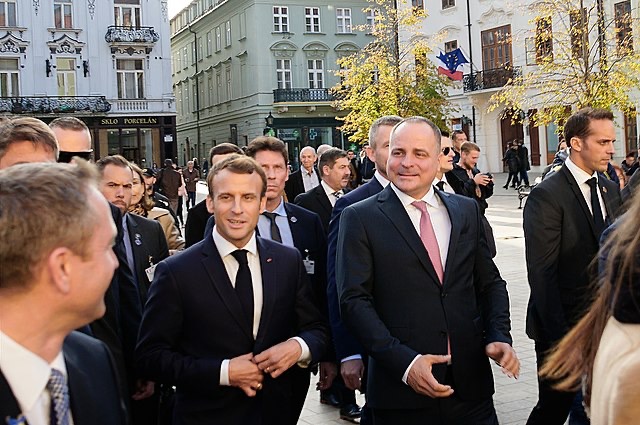The English Channel has become one of the most politically sensitive and humanly tragic frontiers in Europe. Thousands of migrants risk their lives each year to cross from France to the UK in small, often unseaworthy boats. Despite a staggering £500 million investment from the UK into French border enforcement and security, the problem has persisted—and, in some cases, worsened. Recently, France has finally admitted that it can and should do more to tackle this crisis. This shift in tone marks a pivotal moment in UK-France relations and in the management of Europe’s migrant policies.
So why now? What triggered this sudden change of heart? And where is this money going? Let’s break down everything you need to know about this ongoing crisis, the funding behind it, and what might finally change moving forward.
The Channel Crossing Crisis: A Growing Concern
Overview of the Crisis
Channel crossings by migrants have become a flashpoint for political debate and humanitarian concern over the past five years. Migrants, many fleeing war, poverty, and persecution from countries like Afghanistan, Sudan, Iran, and Eritrea, gather in makeshift camps in northern France. Smugglers charge exorbitant fees to ferry them across the Channel in inflatable boats, often under cover of darkness and in dangerous sea conditions.
In 2024 alone, tens of thousands attempted the journey, with a growing number of fatalities adding urgency to the crisis. What was once seen as a rare and desperate act has now become a daily occurrence, with British and French patrols struggling to keep up.
Why Migrants Risk the Dangerous Journey
Despite the obvious dangers, migrants continue to risk their lives for a variety of reasons:
- Perception of better asylum chances in the UK: Many believe that once they reach British soil, they will have a better chance at gaining legal status.
- Language and family ties: English proficiency and family already residing in the UK make Britain a more attractive option.
- Frustration with France’s asylum process: The slow and often rigid bureaucracy discourages migrants from staying.
The Scale of the Problem in 2024
According to reports, over 50,000 migrants attempted to cross the Channel in 2024, with at least 54 confirmed deaths. While the UK and France have worked together to intercept many boats, critics argue that not enough has been done to prevent departures in the first place. The trend is only growing, despite funding and increased enforcement.
The UK’s £500 Million Investment: What Was It For?
Breakdown of the Funding
In March 2023, the UK committed over €500 million (approx. £:
- Increasing surveillance capabilities with drones and radar
- Funding more patrols along the French coast
- Constructing border barriers and detection technology
- Enhancing joint intelligence sharing and coordination
Goals of the Bilateral Agreement
The primary aim was clear: stop small boats from ever leaving French shores. Both governments emphasized “prevention over rescue,” hoping to deter crossings before they happen. The agreement also sought to foster better communication between UK and French agencies.
Public and Political Reactions in the UK
Not everyone was convinced this massive expenditure would work. Critics from all political sides questioned the effectiveness and transparency of the spending. Some argued the UK was “paying France to do its job,” while others believed the solution required deeper systemic reforms, including changes to asylum policies and international cooperation.
France’s Historical Stance on Channel Crossings
Focus on Humanitarian Approach
Historically, French authorities have taken a humanitarian stance toward migrant boats at sea. The doctrine has been to avoid confrontation and ensure safe passage, rather than aggressive intervention.
This has led to practices where French patrols escort boats out of their waters without attempting to turn them back. While well-meaning, this has drawn criticism from the UK for effectively allowing crossings to proceed unchecked.
Criticism Over ‘Non-Intervention’
British politicians and media have frequently accused France of not doing enough. Images of French border patrols standing by as migrants board dinghies or continue across the Channel have enraged UK taxpayers and officials, especially in light of the £500 million handed over to boost enforcement.
Shifting Attitudes Over Time
But pressure has mounted. With increasing deaths at sea and growing public outcry, France has gradually shifted its position. What was once a hands-off policy is now under intense scrutiny both domestically and internationally. The call for a new approach became louder than ever in 2025.
A Change in Tone: France’s Recent Admission
Bruno Retailleau’s Game-Changing Statement
In early 2025, French Interior Minister Bruno Retailleau publicly acknowledged what many had long suspected: France could—and should—do more. He admitted that the current doctrine of merely ensuring safe passage “needs to change” and hinted at stronger enforcement measures to actually prevent boats from leaving.
This marked the first time a top French official openly suggested revising France’s maritime strategy on migrant crossings.
Implications for French Domestic Policy
Retailleau’s comments have stirred debate within France. Some applaud the tougher stance as a necessary correction, while others worry it may compromise humanitarian obligations. There is also legal complexity involved—turning back boats or forcibly intercepting them could violate international maritime laws or asylum rights.
Still, the political will to act appears stronger than ever, especially as pressure mounts from both citizens and neighboring allies.
What This Means for UK-French Relations
This admission may also signal a thawing of tensions between the UK and France. For years, both sides have blamed each other. Now, with France seemingly accepting its share of the burden, there’s hope for more unified strategies.
There’s even talk of new bilateral deals that would allow for the return of migrants from the UK back to France—something the UK government has been lobbying for as a deterrent.



